To that end, I have never borrowed from a bank. Only purchased a home after saving the cash to pay for it and only then to quiet the whining of in-laws that paying rent was “throwing money away.” Only purchased a refrigerator because my wife would not keep our meat on a pole in the back yard in winter. Only run the most used of used cars from “Larry‘s Last Leg Used Car Lot“. I only take generic medicine to cure my ills. I only eat generic food from generic cans with plain white labels. I listen to my own music that I write myself. And I read this blog that I write myself, and anything else that I can lay hands on that is free. In short, I have a black belt in deferred gratification. And, no, if you’re wondering -- it’s really not that I’m cheap. It’s just that I don’t give a damn. Stuff just doesn’t matter to me. Stuff clutters our closets. It takes up the space in our homes that used to be used for living. It requires dusting. It requires washing. Buying it requires your long-term participation as a wage-slave or indentured servant to the same people who sell it to you. For most, it requires a down payment. Monthly interest payments. Credit -- on the approval of a banking hierarchy that would decline to shake your hand at the closing of a deal least you infect them with the germs of a common person. Who would take your money, but would not have you as a member of their country club. And almost nothing that is pushed on us by the predators on Madison Avenue is actually necessary to either our survival or our quality of life. Not the automobiles. Not the electronic gadgets. Not the “buy now pay later” furniture. Not the big screen TV’s. Nothing. Because none of those things really enhance our lives. Our brains do. And our brains are all that is needed to experience the world around us, even in it’s natural, digitally “unenhanced” state. That’s because 90% of what is important in life occurs between our ears. The other 10% occurs between our legs. And beyond that nothing is important. We think it is. We’re told it is. We’re prodded into a lifestyle of mindless “consumption for the sake of consumption” to enable the few wealthy among us to become ever richer, while the invisible poor of the third world go without food and die daily from starvation. And we increasingly deplete the earth’s resources so that tomorrow’s generations will lead lives far worse than those of the “silent desperation” that Thoreau spoke of. So, am I too extreme? I am hardly radical at all by some standards.
There are others who have lived even more extreme lives than I. There are the few who hold down good paying full time jobs, but choose to live only slightly above the level of “dumpster divers.” They choose to live in their vans for years so that they can achieve things like buying their first home for cash or escaping the rat race and retiring early. I managed to do that; even without going to those extremes, but they are still the sort of people I admire: The ones who, from early on, choose to walk away from the normal paths that others look to impose on them. The ones who ignore the admonitions of the high school guidance counselors, parish priests, evangelical preachers, politicians and harebrained, role modeling, laxative-gulping anal-retentives who manage to float to the top of the toilet bowl of the social order.
I aspire to a simpler life, a simpler time. One that followed the era when our ancestors first climbed down from trees, lost their tails, sprouted the enhanced neural networks we have today, and became hunter-gatherers. It was a good time to be alive. A time when our hands still clung tightly to the bosom of the earth, even while our opposable thumbs reached out, beyond our grasp, to the yet to be born notions of Descartes and Hume and Lock and Nietzsche. It was a time when the “starry starry night” existed both in nature and in ourselves. That culture must have lingered among human kind for a million years before the first chump noticed that those seeds inside wild tomatoes could hit the ground running and magically give birth to an entirely new crop. And so began the vicious cycle that we know today as agrarianism, the ownership of property, morality, law, religion, banking, war, slavery, industrialization, and all of those things that we as a society today hold dear. The things which, I like to say, follow us all -- from the cradle of civilization to the grave of entropy. They are -- all of them -- the things I would most like, in my life, to ignore.
Today we are gathered as human beings on the threshold of the final ripening of humanity. It is the equivalent of no simple “senior-moment” in our history. It is an “evolutionary-moment”. One which will determine whether the next epoch will include humanity among the surviving or the extinct species of the earth. We will survive as a species only if we are willing to learn to postpone gratification so that our progeny will inherit the means and necessities of survival. And it will happen only if we allocate the resources of the earth equitably and sustainably, not just for the next 40 years, but for the next million.
.
.

Of Paper Cups and Permanence ( A Tone Poem for the Tone Deaf) by jimmi malarky is licensed under a Creative Commons Attribution-No Derivative Works 3.0 United States License.
Based on a work at malarkyspond.blogspot.com.
Permissions beyond the scope of this license may be available at http://malarkyspond.blogspot.com/.
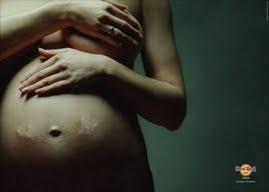



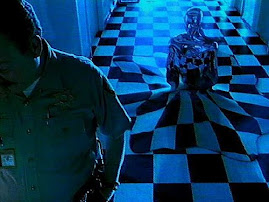


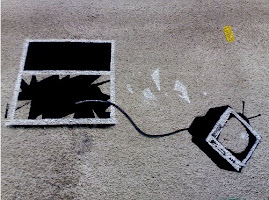
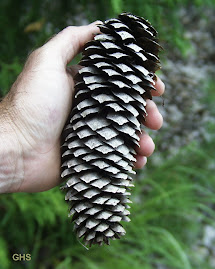


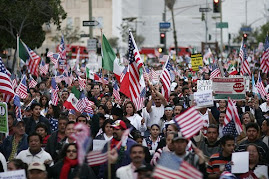




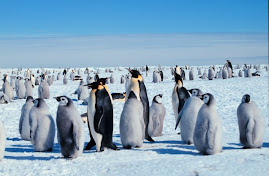



No comments:
Post a Comment